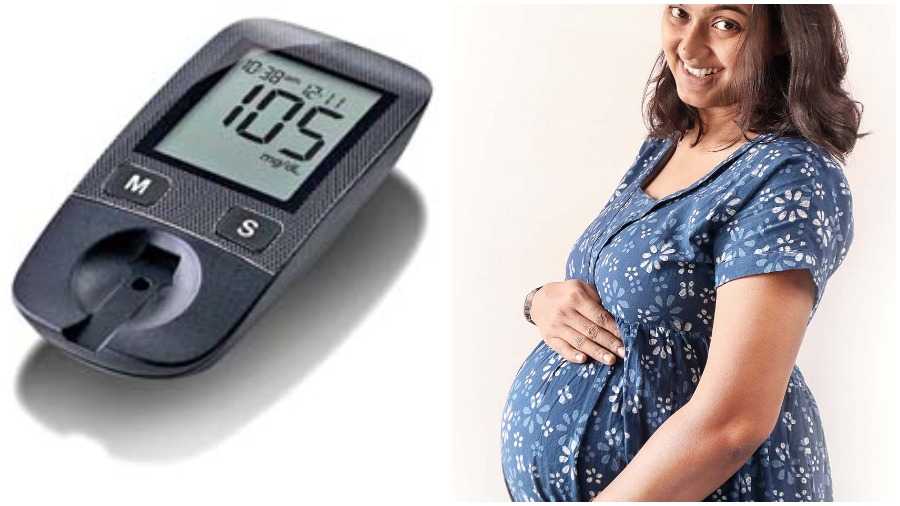Gestational Diabetes Mellitus (GDM) is a development of diabetes (of any degree) first diagnosed during pregnancy or commencing with pregnancy. This GDM may be overt or pre-existing but unrecognised before pregnancy, or developed due to the pregnancy itself.
GDM is prevalent in 18 per cent of pregnant women and it increases progressively during pregnancy.
Risk factors and tests
Women who are obese, have had multiple previous childbirths, are of advanced maternal age, had diabetes during previous childbirth, had large baby at birth, polycystic disease and family history of diabetes, are at greater risk of developing gestational diabetes.
GDM screening is done on the first antenatal visit to the clinic by fasting or random blood glucose or HbA1c on all women. If fasting blood sugar is 126 mg/dl or more, HbA1c is more than 6.5 per cent, it is labelled as overt diabetes. However, if fasting plasma glucose is 92 mg/dl or more, then it is labelled as GDM.
Women who are not previously diagnosed as overt or GDM are subjected to repeat testing. If she is found to have raised fasting glucose equal or more than 126 mg/dl on OGTT then she is suffering from overt diabetes.
Why screen GDM?
GDM is well documented to be associated with multiple complications in both mother and baby.
Among the risks to the baby are the following: They can be born large or with restricted growth, enlarged liver, enlarged heart, birth trauma like fracture or nerve palsy during delivery of large shoulders, hypoglycaemia in new born baby, breathing problems, jaundice at birth, and congenital birth defects, among others.
In the long run, these infants have a risk of obesity, type 2 diabetes, cardiac disease, decreased brain or motor activity risk.
In mothers, there is a risk of high blood pressure, increased water, and operative delivery. Later on, these mothers could become patients of type 2 diabetes mellitus and cardiac disease.
Treatment of GDM has been shown to reduce the risk of serious birth trauma, high blood pressure during pregnancy and large babies.
How to treat GDM
There are various modalities of treatment available. Some of them are as follows:
ß Glucose Self Monitoring: One can monitor her own blood glucose either fasting or after 1hour of food and modify diet accordingly. Target is fasting blood glucose to be 95 mg/dl or less, 1 hour post food glucose to be 149 mg/dl or less.
ß Exercise: Exercise improves the control of blood sugar. Even light exercise like walking after meals can decrease blood sugar level.
ß Lifestyle and diet modification: Modification in one’s lifestyle and diet by daily exercise, avoiding fatty, fried, high sugar fruits/food, fast food and smoking and alcohol, can help control blood sugar. Food with high fibre helps to control blood sugar better.
ß Medical treatment: Women who cannot control blood sugar on diet alone require additional support in the form of medicines, which can be daily insulin or oral anti-diabetic medicines, which are found to be equally effective and safe during pregnancy.
Preventive measures
Any obese woman should undergo weight loss prior to conception to prevent developing GDM. Higher level of physical activity during pre-pregnancy or early pregnancy is associated with lower risk of development of GDM in several studies. Some studies have shown beneficial effects of probiotics in diet to prevent GDM.
D-Day procedure
GDM patients usually have large babies due to deposition of fat and such babies are at risk of birth injuries during vaginal deliveries. Caesarean section at 37/38 weeks is a safer alternative. However, small-for-date babies can undergo vaginal delivery at institutions under supervision.
With global increasing maternal obesity and advancing age of marriage, there is a surge of GDM and requires adequate awareness among women to have fruitful obstetric outcomes.

Dr Aruna Tantia is director and consultant surgeon (gynaecology and obstetrics) at ILS Hospitals











